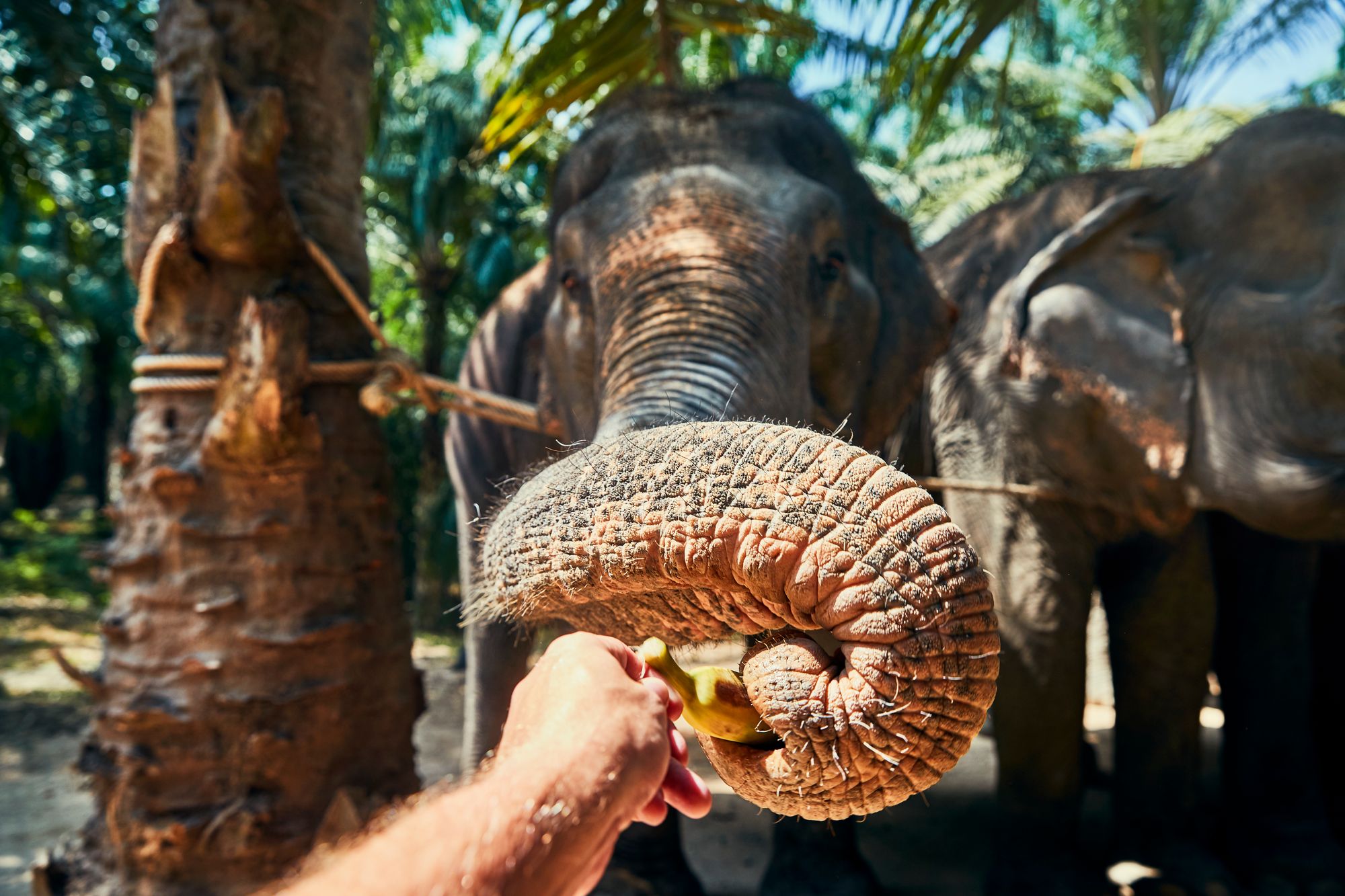Should You Eat Carbs Before Your Workout?
Eating carbs before your workout might seem like such an obvious thing to do - but does it really help with your lifting performance? Let's see.

Ask anyone in the gym (who’s not on a ketogenic diet, obviously) if they're eating carbs before their workout, and, chances are, you'll get an "? Of course!"
Then, followed by a look suggesting that anyone who's not fueling their workouts with massive amounts of carbohydrates just isn't serious about their muscle gains. Is this viewpoint justifiable, though?
Should you be eating carbs before your workout?
And if you don’t, could you really be hurting your performance in the gym – and associated muscle gains? So many questions. But not to worry. This article is here to quell all your doubts on:
- Whether you should include carbs in your pre-workout meal
- If it’s ever wise for you to skip your pre-workout meal completely
Introducing: glycogen, your primary source of energy
One of the most convincing points for eating carbs before your workout comes down to something called stored glycogen.
Glyco – what?
To understand that, you'll first need to know where your body gets its energy from. That's right: it comes from the food you eat. More specifically, though, most of the carbohydrates you eat are converted to glucose. This is our (i.e. humans') primary source of energy.
When the body doesn’t need the glucose for energy, which is most of the time, your body links all these excess glucose molecules together in chains of 8 to 12 glucose units.
And what are these linked chains of glucose called? Yep, you guessed it: glycogen.
So, in a way, you can think of glycogen as your ‘energy reserve’ stored in your liver and muscles. Your blood glucose levels should range between 80 to 120 mg/dl at any point in time.
Your body keeps this under tight control; both hyperglycemia (i.e. too much blood glucose) and hypoglycemia (i.e. too little blood glucose) can potentially be life-threatening.
So, I should eat carbs before my workout?
With all that said … you must be thinking, “Doesn’t that mean I should definitely eat carbs before my workout?”
After all, exercise uses up your freely circulating glucose – and that'll mean your body has to dip into your glycogen storage (to maintain your blood glucose levels), right?
And once your glycogen stores are depleted, that’s it: it’s game over.
You’ll run out of fuel during your workout. You can say goodbye to any chances of you breaking your PRs.
Well, not so fast. Why? That’s because running out of glycogen isn’t easy.
To illustrate this point, assume that you’re an average-sized adult weighing 70 kg. Here’s how much glycogen you’re storing in your:
- Liver: 100 to 200 grams (i.e. 400 to 800 calories)
- Muscles: 400 grams (i.e. 1,600 calories)
That totals to anywhere between 2,000 to 2,400 calories!
Unless you're working out for more than 3 hours (e.g. during a marathon), you will find burning through this number of calories challenging.
And guess what? Research agrees.
Nearly every study that’s investigated the effects of eating carbs before a workout has failed to find any significant improvement in resistance exercise performance. Keywords: failed to find!
But why?
Well, this can be easily explained by the fact that they still had plenty of glycogen stores to burn through. Those additional carbs right before a workout were – for lack of better phrasing – redundant.
Do what feels best for you
What does this mean for you?
Knowing this information, should you just skip your usual carb intake before your workout? Or – could you even skip your pre-workout meal altogether?
The answer to these questions is to do what feels best for you (as cliche as that might sound!)
If you feel good eating carbs (and eating, in general) right before your workout, then by all means … do it.
Feeling good about your workout also plays a big part in your lifting performance. Feel good, lift more, and you’ll get in a higher training volume.
That’ll help you build more muscle.
On the other hand, if you’ve always felt like you had to force yourself to eat before working out – and felt like vomiting in the process, then now you have a reason to skip that pre-workout meal and those carbs.
Make sure you hit your target daily macronutrient intake
Regardless of whether you choose to skip your pre-workout meal (and carbs) … you have to make sure you’re still hitting your daily macronutrient needs.
Think of it this way: what to eat before a workout, exactly, doesn’t nearly matter as much as how you eat throughout the day when it comes to muscle gain and overall energy levels.
But wait. What if you’re not even sure the exact figures of carbs, fat, and protein that you should be eating daily?
Here’s a rough guide:
- Protein: 1.6 to 2.0 grams per kilogram of bodyweight
- Carbs: Deduct your protein calories from your target calorie intake, then allocate 60% of those calories to carbs
- Fat: Needless to say, all the remaining calories should go toward your fat intake
If you’re looking for an in-depth guide to figuring out your nutritional intake requirements, this article’s got you covered.
Nutrition is only a part of your fitness journey
I’m not trying to overwhelm you here … but truth be told, when it comes to achieving your fitness goals, nutrition (e.g. what to eat before your workout) is only part of it.
There are many other factors you have to pay attention to. For instance, your training programming, recovery, and even mindset affect how well you perform in the gym and your resulting muscle growth.
Is your heart rate accelerating? Can you feel yourself burning through all that freely-circulating glucose?
Well, how about this.
Let GymStreak take over one of the most critical parts of your fitness journey: workout planning and programming. We'll help you select all the best exercises that'll help you reach your goals and even tell you how many sets and reps you need to do them for.
Sounds good? Then check out GymStreak right now.
Get GymStreakReferences
Dalton, R. A., Rankin, J. W., Sebolt, D., & Gwazdauskas, F. (1999). Acute carbohydrate consumption does not influence resistance exercise performance during energy restriction. International Journal of Sport Nutrition, 9(4), 319–332. https://doi.org/10.1123/ijsn.9.4.319
Haff, G. G., Koch, A. J., Potteiger, J. A., Kuphal, K. E., Magee, L. M., Green, S. B., & Jakicic, J. J. (2000). Carbohydrate supplementation attenuates muscle glycogen loss during acute bouts of resistance exercise. International Journal of Sport Nutrition and Exercise Metabolism, 10(3), 326–339. https://doi.org/10.1123/ijsnem.10.3.326
Ivy, J. L. (2004). Regulation of Muscle Glycogen Repletion, Muscle Protein Synthesis and Repair Following Exercise. Journal of Sports Science & Medicine, 3(3), 131–138.
Knuiman, P., Hopman, M. T. E., & Mensink, M. (2015). Glycogen availability and skeletal muscle adaptations with endurance and resistance exercise. Nutrition & Metabolism, 12, 59. https://doi.org/10.1186/s12986-015-0055-9
Kulik, J. R., Touchberry, C. D., Kawamori, N., Blumert, P. A., Crum, A. J., & Haff, G. G. (2008). Supplemental carbohydrate ingestion does not improve performance of high-intensity resistance exercise. Journal of Strength and Conditioning Research, 22(4), 1101–1107. https://doi.org/10.1519/JSC.0b013e31816d679b
McMillin, J. M. (1990). Blood Glucose. In H. K. Walker, W. D. Hall, & J. W. Hurst (Eds.), Clinical Methods: The History, Physical, and Laboratory Examinations (3rd ed.). Butterworths. http://www.ncbi.nlm.nih.gov/books/NBK248/
Wasserman, D. H. (2009). Four grams of glucose. American Journal of Physiology-Endocrinology and Metabolism, 296(1), E11–E21. https://doi.org/10.1152/ajpendo.90563.2008

